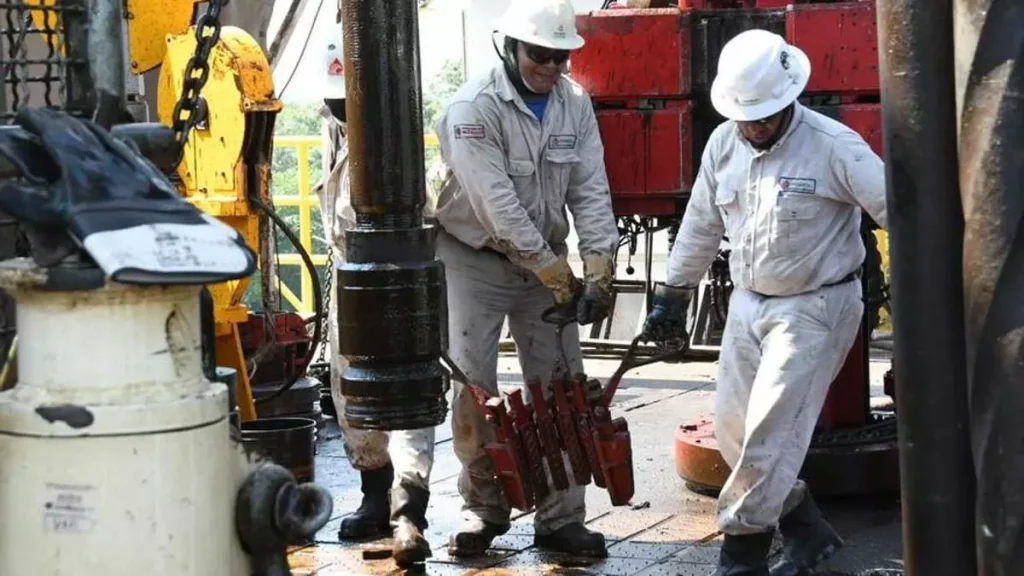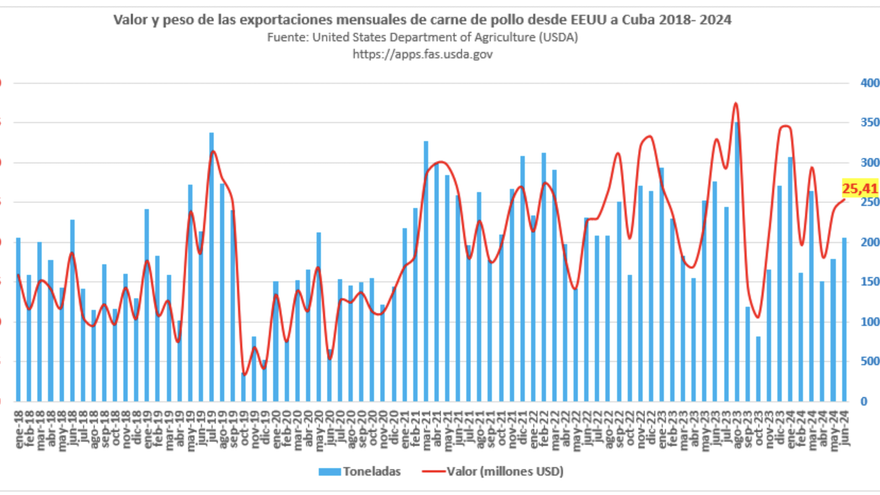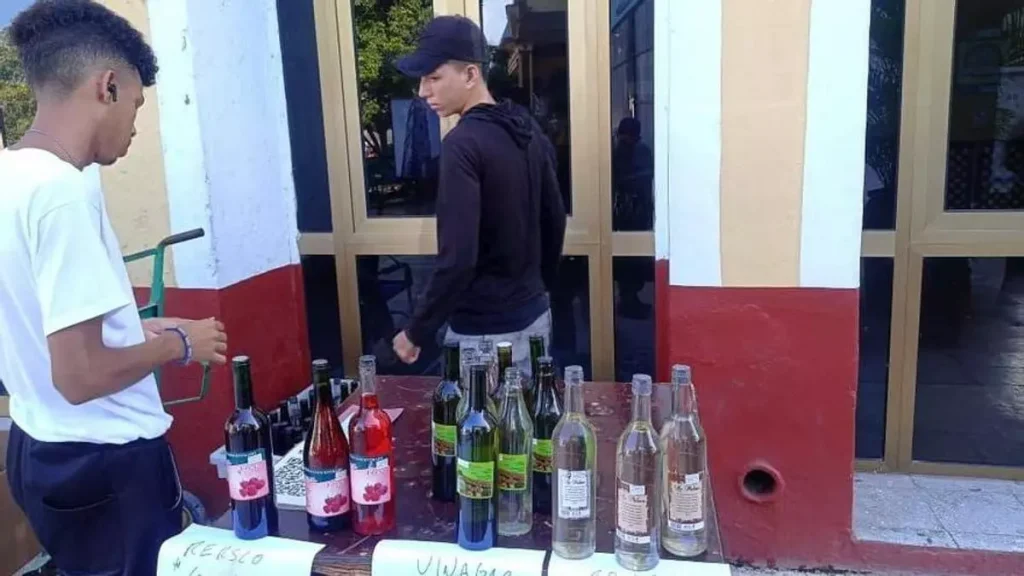
![]() 14ymedio, Havana, August 10, 2024 — Gasolineras Bienestar, a subsidiary of the state-owned Petróleos Mexicanos (Pemex), sold 21,800 barrels of crude oil per day (bpd) to Cuba in the first quarter of this year. The amount represents an increase of 30% with respect to the 16,800 bpd that the Government of Andrés Manuel López Obrador sent to its Cuban ally between July and December 2023. The oil romance between Havana and Mexico – in the midst of the political tension of Venezuela, the island’s main supplier – will continue to be strong.
14ymedio, Havana, August 10, 2024 — Gasolineras Bienestar, a subsidiary of the state-owned Petróleos Mexicanos (Pemex), sold 21,800 barrels of crude oil per day (bpd) to Cuba in the first quarter of this year. The amount represents an increase of 30% with respect to the 16,800 bpd that the Government of Andrés Manuel López Obrador sent to its Cuban ally between July and December 2023. The oil romance between Havana and Mexico – in the midst of the political tension of Venezuela, the island’s main supplier – will continue to be strong.
Pemex also sent 3,600 bpd of gasoline and other petroleum derivatives to Havana, which is an increase of 9% compared to last year, reports El Universal. The total value of the shipments was 200 million dollars – 3.3 billion Mexican pesos – according to a report that Pemex sent to the United States Securities and Exchange Commission, which does not welcome the growing closeness between the two countries and warned that Pemex could suffer sanctions. However, it is still not known if it is a sale, a donation or a barter in exchange for services, such as the sending of 5,000 Cuban doctors to Mexico.
Havana has enjoyed shipments of Mexican crude oil since July 2023, when the rapprochement between the regime of Miguel Díaz-Canel and the Administration of López Obrador was consolidated. According to Gonzalo Monroy, director of the energy consulting company GMEC, fuel shipments are part of a “political decision” by the Mexican Government, and the proof is that they use Gasolineras Bienestar and not PMI, the subsidiary of Pemex responsible for international trade. continue reading
The United States, Monroy believes, “can severely punish the Mexican oil company,” with “serious financial consequences.” On the other hand, López Obrador’s gesture “reflects the actions of support between similar regimes” and places Mexico in a status of alliance with Havana similar to that of Caracas.
López Obrador’s gesture places Mexico in a status of alliance with Havana similar to that of Caracas
An expert from the consultancy Perceptia 21, Abril Moreno, warned that “Pemex can suffer sanctions if it is declared that the relationship with Cuba violates the Cuban Democratic Freedom and Solidarity Act”; that is, the Helms-Burton Law, since Pemex imports gasoline from the United States and seeks financing in that country.
Last June, the expert from the University of Texas, Jorge Piñón, had estimated that Mexico was not only sending oil to Cuba, but also fuel (gasoline and diesel). Pemex’s report confirms the professor’s forecast, who had also noticed that the quantities exported to the Island were increasing.
The Ocean Mariner, a small Liberian-flagged tanker that is subleased by Cuba and has a capacity to carry about 83,000 barrels, is part of the fleet that comes and goes between the Island and Mexico. While the Vilma and Delsa load crude oil in the port of Pajaritos (Veracruz), the Ocean Mariner collects fuel in the port of Tampico, which serves the Ciudad Madero refinery.
Piñón explained at the time that Cuba was “storing strategic oil reserves” in case Caracas was destabilized after last July’s elections. The situation, in fact, has arrived, and it has not been possible to know how much oil Venezuela has sent to its ally, although the British agency Reuters said – without revealing numbers – that export levels had remained normal during the month.
It is still not known if it is a sale, a donation or a barter in exchange for services, such as the sending of 5,000 Cuban doctors to Mexico
In the homes of the Island, the benefits of this movement are barely felt in an August marked by scorching heat, blackouts, shortages and dengue and Oropouche infections. In an energy limbo for months, Cubans are anticipating a weekend of power cuts.
The state-owned Unión Eléctrica warned that an affect of 783 megawatts was estimated for this Friday, and that the rest of the weekend would be similar. The company reported that unit 4 of the thermal power plant of Cienfuegos, 2 of Felton (Holguín), 5 of Renté (Santiago de Cuba) and 5 of Nuevitas (Camagüey) were out of service due to breakdowns. In addition, 49 distributed generation plants are also shut down due to various types of failures or lack of fuel.
Translated by Regina Anavy
____________
COLLABORATE WITH OUR WORK: The 14ymedio team is committed to practicing serious journalism that reflects Cuba’s reality in all its depth. Thank you for joining us on this long journey. We invite you to continue supporting us by becoming a member of 14ymedio now. Together we can continue transforming journalism in Cuba.

























